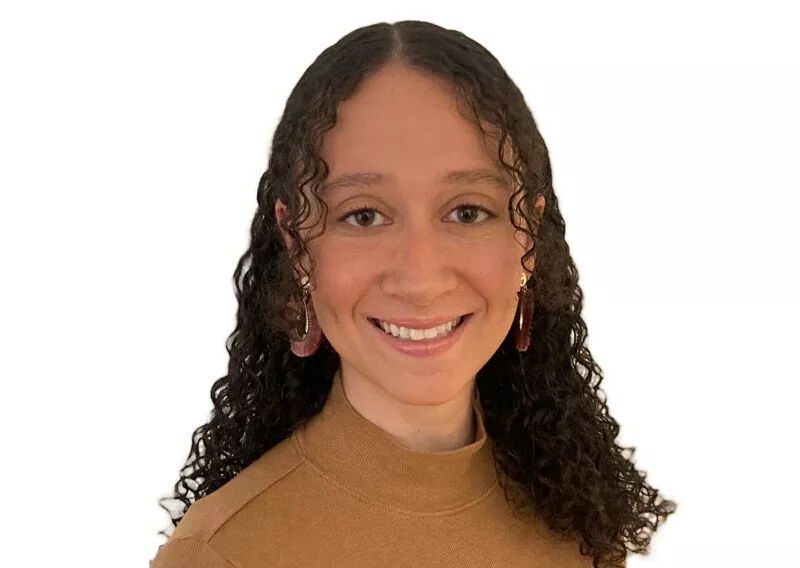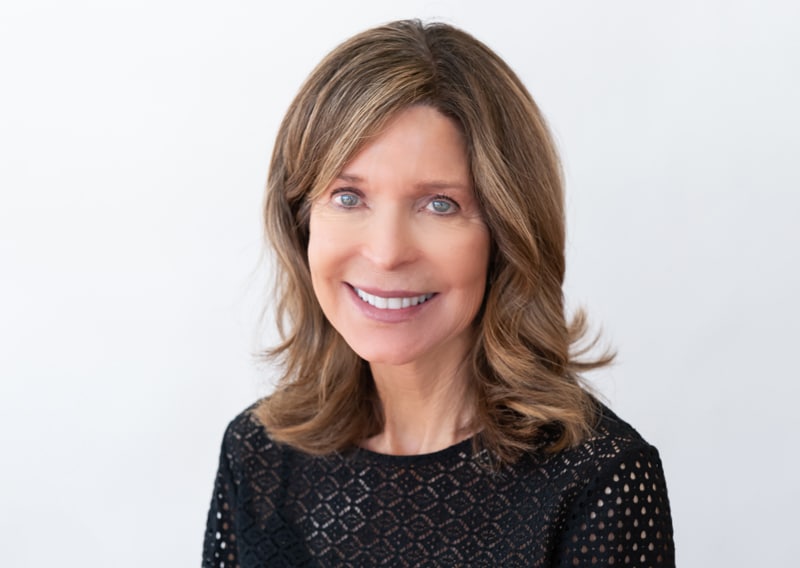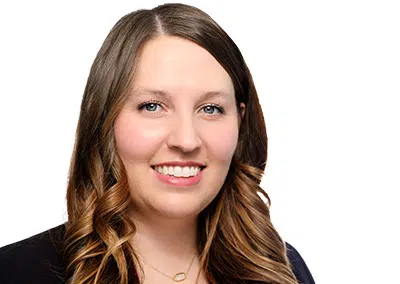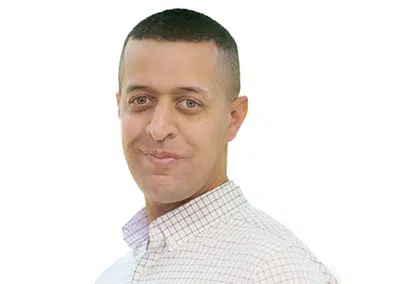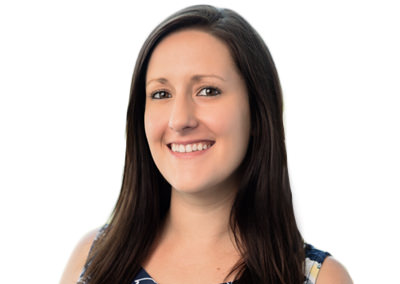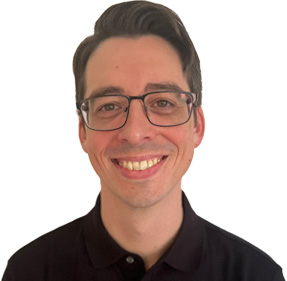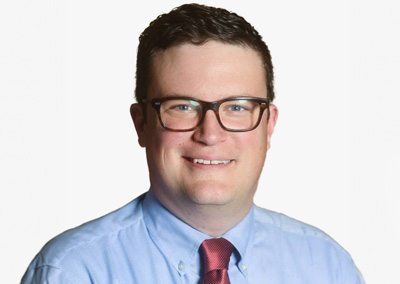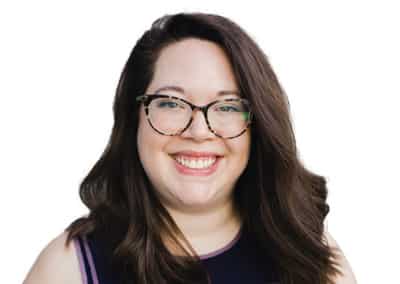
Questions About Life Coaching:
Do You Need Certification to Be a Life Coach?

Dr. Lisa Marie Bobby is a licensed psychologist, licensed marriage and family therapist, board-certified coach, AAMFT clinical supervisor, host of the Love, Happiness, and Success Podcast and founder of Growing Self.
If you’re an insightful, caring, and ambitious person who loves talking to people and helping others thrive, then deciding to be a life coach may sound like the perfect career path. You can be your own boss, set your own hours and rates, and guide your clients through a life-changing process of personal growth. What could be more satisfying?
Perhaps most appealing of all, becoming a coach can be easy. Just set up a website and do a little social media marketing, and you can start working with clients in no time. You don’t even need a degree! (Besides, you’ve already earned one from the “school of life experience,” right?)
If you’re an aspiring coach, this idea may excite you. But if you’re a prospective client you may be feeling concerned — and with good reason. The low barrier of entry — or, more correctly, the “no” barrier to entry — into the coaching profession is actually a big problem. Unqualified life coaches can pose a serious threat to their clients, especially vulnerable people who really need the help of a well-qualified professional.
If becoming a life coach is something you’re seriously considering, it’s important to go about it in the right way. Here’s a guide to doing just that, so that you can be confident that your work is actually helping people, not wasting their time and money — or worse — doing them harm.
Becoming a Life Coach
What is a life coach? A coach is someone who helps you get better results. A large share of Americans could use a little help with things like healthy relationships, emotional intelligence, personal growth, career development, or health and wellness, and they’re willing to pay for it. Many look for an online life coach or get involved in Denver life coaching, because coaching can be a more direct, action-oriented path to help you move forward than traditional talk therapy or other forms of personal development. Lots of people are eager for this kind of support, and understandably so. Finding a great life coach can be truly transformational.
In 2018, coaching officially became a billion-dollar industry, and its market value is projected to continue growing for the foreseeable future. The number of life coaches has exploded in recent years to meet the growing demand. As of 2021, the International Coaching Federation estimates there are 71,000 coaches working worldwide, an increase of 33 percent since 2015. There has also been a surge of research into evidence-based coaching psychology, much of which has demonstrated how useful it can be to work with a good coach.
Unfortunately, most of the people providing coaching services do not have any specialized training or education in coaching psychology, nor do they utilize evidence based practices in coaching. That is because unlike the field of clinical psychology, coaching is completely unregulated, meaning that literally anyone can call themselves a life coach or online life coach and begin taking on clients, without attaining any specific credential or license. Of the life coaches who are certified, many became so through programs that involved little more than taking a single online class or attending a weekend seminar. (There’s no regulation of coach training programs either). Learn more about the differences between a life coach vs therapist.
The proliferation of unqualified coaches has done damage to the industry’s reputation, causing some to question whether life coaching as a practice has any merit whatsoever. This is a shame, since the benefits of coaching can be huge, helping clients to make positive changes in order to reach their goals, increase their self-love, and gain a valuable skill set for tackling future challenges. Of course, working with an untrained coach is unlikely to deliver such positive results.
But the dangers of unqualified coaching go beyond lackluster outcomes, sadly. Coaches who don’t know what they’re doing can actually pose a risk to their most vulnerable clients.
Let’s Talk.
Schedule a Free Consultation Today.
The Dangers of Life Coaching
Most people who enter coaching do so from a place of dissatisfaction with the current state of their lives. Maybe they’re having trouble feeling secure in their relationship, or they’re in a toxic workplace and miserable at work, or they’re just trying to figure out how to get “unstuck,” but they don’t know exactly what they’d like to change. This is all normal.
The exploration phase of coaching starts with insight, and helps people understand the hidden obstacles we all face from time to time. Maybe it’s choosing the wrong romantic partners, or that they need to learn to build emotional intelligence skills, or their failure to set ambitious goals for themself is standing in the way of a more fulfilling life.
But what if the cause of someone’s dissatisfaction is something more serious? They could be struggling with major depression, or severe anxiety rather than some run-of-the-mill life challenge.
This is the biggest danger of life coaching: It’s not an appropriate treatment for mental health diagnoses, and most life coaches don’t have the education and training to recognize these issues when they’re looking right at them.
At best, attempting to coach someone who’s struggling with a mental health problem will be a waste of the client’s time and money. At worst, it could be life threatening. Depression can be a fatal illness, after all, and coaching can delay clients from getting the treatment they need, and can even make the symptoms of this and other psychiatric issues worse.
How To Be an Effective Life Coach
So how do you avoid becoming another unqualified life coach, delivering less-than-stellar results, bringing down the industry’s reputation, and posing a risk to vulnerable clients?
The answer is not some online coaching certificate, “How to Coach” book, or weekend training program. It’s to make a real investment in your education and your future by earning an advanced degree that will truly equip you to be of service to others, then obtaining a coaching credential on top of that.
I know, this is not the most satisfying answer. We all love a quick fix, and many life coach training programs promise just that. A quick Google search turns up one such program that will deem you a “Certified Life Coach” after a three day Zoom course for the price of $995. (If you’d like to be a “Master Certified Life Coach,” that will take six days and cost an additional $1295).
Of course, no three-day training program can prepare you to identify mental health conditions, help you develop effective coaching skills, or give you the grounding in psychological research that the most effective, evidence-based coaching techniques are based in. For that, you need to earn an advanced degree in counseling psychology from a reputable university.
If you really want to be a coach — a good one — first you must become a therapist.
Let’s Talk.
Schedule a Free Consultation Today.
Want to Be a Coach? First, Become a Therapist
While becoming a therapist is easier than ever (and becoming easier than it should be, thanks to unaccredited private online counseling degree programs), to become eligible for licensure as a therapist you need to learn many things: basic psychology, child development, abnormal psychology, substance use, multicultural competencies, counseling skills, and much more. If this sounds like a lot… it is!
If you’re going to school full time, it will take at least a couple of years to work your way through a high-quality graduate degree in counseling psychology. You can expect to spend 2-3 years in a master’s program, and if you wanted to obtain a doctorate as well, it will require an additional four years of school and training. (Plus a couple of post grad years working under supervision in order to become licensed.)
Helping Professionals Have Sacred Responsibilities: Do No Harm, and Be of Benefit
If you want to be a coach, and are reading this and feeling sad or discouraged right now, please don’t: Helping people is a privilege, and it is also a huge responsibility. To be of real assistance to people, you should understand psychology, human development, and abnormal psychology.
Think of it this way: Shouldn’t a medical professional who people are trusting to help with their health issues be required to understand the basics of human anatomy and physiology, biochemistry, and infectious diseases? Counselors and coaches are being entrusted to help people with their thoughts, feelings, and behaviors — arguably, just as impactful to someone’s life experience as their health.
I am personally both a therapist (with a master’s and a doctorate), and also a certified coach. I did all the things, and I have many years of experience. I routinely have people reaching out to me for coaching services, and it all sounds appropriate at first blush, but it is not uncommon at all for me to get a session or three in, only to learn that the person seeking help from me is not appropriate for coaching. They are dealing with things that require psychotherapy in order to resolve.
But they don’t know that. If I was an untrained coach, I woudn’t know that either. I’d just keep on going! Thankfully, since I do understand the differences between counseling vs coaching I can help my clients understand too, and help them get on a path that will be truly helpful for them.
Furthermore, since I have a deep understanding of the principles of psychology that lead to real and lasting change in people, and in their relationships, I am able to apply them to a positive, coaching framework that is truly effective. I believe that excellent, evidence-based coaching can actually be more helpful to many people than traditional, introspective talk therapy. But if I didn’t learn all the things I did in counseling school, I would not be an effective coach. (Trust me on this: I went through the trouble of going through an accredited coach training program and am officially a “board certified coach.” This required several weeks of my time to read through some articles, watch some videos, and I had to pass a test. It was nothing.)
How to Become a Therapist
To develop the understanding and skills to be truly helpful to people, commit to it: Become a therapist, and then pursue coach training. Here’s how to start:
Education
First, you’ll need to get a master’s degree in counseling psychology, clinical psychology, marriage and family therapy. Or, if you want to specialize in career coaching, look for a master’s program in career counseling and professional development.
Pro Tip: When choosing a program, it’s vital you choose one that’s accredited. For one reason, accredited graduate programs have to meet educational and training standards that result in YOU having a better education and being much better able to help your clients. But also, in many states, graduation from an accredited program is required in order to become licensed as a therapist.
If your program was not accredited, it can create professional obstacles later, including your ability to get licensed. For example, when you apply for licensure you will have to provide transcripts showing what classes you took, and you may need to take additional classes in order to meet the requirements of the state licensing board. Some non-accredited online counseling programs are not up front about that when you register. I’ve met more than one newly graduated therapist who got a nasty surprise when they found out, belatedly, that their master’s program did not meet state licensing criteria and they had to take more classes! To avoid this headache, look for a program accredited by COAMFTE, CACREP, or APA.
Public vs Private Universities
More free career advice: Avoid private schools if you can, and seek out a master’s degree from a public university. The reason for this is the cost. You can get a degree from an excellent, accredited master’s program through a public university for a fraction of the cost of what you’d pay to attend a similar program through a private school. This can mean the difference between paying your own tuition as you go, vs. finding yourself with student loan debt of several hundred thousand dollars.
As a therapist (or a coach, for that matter) you can expect a salary range between $45k – $85k, if you are employed by an agency or are in a moderately successful private practice. I personally know more than one psychologist and even a couple of social workers who managed to graduate with over 300K in student loan debt. Do not do this. While you can earn more money in a successful group private practice or solo private practice, it will never be enough to justify that much student loan debt! Find a good public university instead.
Clinical Training and Experience
Once you are finished with the educational component of your graduate degree (i.e. your classes), then you will have a practicum, and also an internship. During your practicum you will “practice” your counseling skills. In high quality programs, this will involve your conducting counseling sessions in an observation room with a one-way mirror. Behind the glass will be your professor, watching, and your practice sessions will also be video taped. Your instructor will be able to critique and coach you around your counseling skills, and if you make a mistake (or have a success!) you will be able to learn from it by re-watching the video of that counseling session with your teacher and classmates. This is a positive experience, and you will learn so much about yourself, and also how to be a truly effective counselor.
Once you’ve completed your coursework and practicum, then you will be eligible to apply for internships. An internship in counseling is an opportunity to work in a supervised setting that is supportive, and that offers you additional training and educational opportunities in exchange for your work. Doctoral internships are typically paid, but master’s internships are usually not.
Getting accepted into a good internship site can be quite a process in itself. You generally have to submit applications and go through an interview process. But please be selective here if you have options: A good internship site will be truly devoted to your professional development, and will offer you a very high quality learning experience. A bad internship site will just use you for free labor, without much support or professional development opportunities.
While you are doing your internship (generally over the course of a year) you will continue to meet with your internship class through your university program. Your internship “class” will generally be a small group of 4-6 other counseling students who are also in their internship year. This is an opportunity to get extra support and supervision around your client caseload, and continue to develop your understanding of how to be an effective helper. Learning about all the things in your classes and through your required reading is a very different experience than actually doing it in practice. But having the opportunity to talk through your experiences with your professor and your classmates helps you start to put everything together, and deepen your understanding.
Thesis or Dissertation
For some degree programs (particularly if you’re getting a doctorate) you may also have to write a master’s thesis, or conduct original research and write a dissertation. This process is a lot of work, but it also offers a unique opportunity to dive deep into the research around a topic that is of special interest to you in your career.
During your clinical experience you will have been encouraged to develop your professional identity, and think about what you want to specialize in as a therapist. With your dissertation or thesis project, you’ll get to learn everything there is to know about helping a specific population of people, or about how to help with a specific type of problem. This will better prepare you to be truly helpful to the people you’ll be serving in your role as a therapist, and eventually, as a coach.
If you get to do original research in requirement of your doctorate, you can also add to the body of knowledge that is so essential to providing high quality psychological services. (Here’s more about the process of research in clinical psychology and evidence-based practices, if you’re interested).
Attaining Licensure as a Therapist
Once you’ve earned your Master’s (or Doctorate!) in counseling psychology, you can then begin the process of becoming licensed as a therapist. First, you need to register with the state licensing board of the state you’re seeking licensure in. Then, you will need what’s called a “clinical supervisor” and you will work under their licensed for 1-2 years. You can get a clinical supervisor through your employer (if you are hired by a mental health agency) or you can pay for a private supervisor. Sometimes psychologists will do a “post doc year” which is generally an employment situation that continues to provide continuing education and professional development opportunities, as well as clinical supervision.
During this time you will see clients and document your clinical experience hours. Typically between 1000-2500 clinical experience hours are required to become licensed as a therapist, depending on what kind of license you pursue. (Licensed clinical social workers and licensed professional counselors are on the lower side, and marriage and family therapists and psychologists require more experience hours.)
As you are working with clients, you will meet with your clinical supervisor regularly, usually once a week to every other week. You may have the option to participate in group supervision as well, which is a fantastic experience. In supervision, you will have the opportunity to talk through difficult cases, expand your understanding of how to help people, and also deal with personal issues that are emerging during your work with clients. (For example, if you have a client who is dealing with an issue that you also had or have, it can create feelings that need to be owned and managed so they do not negatively impact your work with your client.)
Working with a great supervisor is an incredible experience. A wise supervisor offers you support, guidance, and helps you deepen your knowledge of yourself and your clients. Through this experience, you will develop into a truly effective counselor who is well-prepared to work independently and be of genuine help to the people coming to you for assistance with their mental health issues, but also their relationships, their happiness, and their career dreams too.
Board Exams
Depending on the type of professional license you intend to pursue, you will also need to pass a board exam. Many states require you to pass a national exam specific to your profession. You can decide when to take these exams, though many require that you have completed your degree before you are allowed to take them.
I have advice… hard won advice: Take your exam close to the time you graduate, if you can. I passed the N.C.E. exam (National Counselor Exam) right after I finished my master’s program, and it was a breeze. Then I had to take the national marriage and family therapy exam to become licensed as an MFT, but I was well into my supervision years before I did. I studied a lot but that exam was difficult!
After I was licensed as a marriage and family therapist, I went through a PhD program to become a psychologist. Since I was already licensed as an MFT, I took my time in obtaining my licensed psychologist credential. I wound up taking that exam (the EPPP, for psychologists) years after I graduated…. and that was a mistake. I passed, but it would have been much easier and required much less study time if I’d taken that exam closer to the time I’d graduated from my PhD program. I was also nine months pregnant, at that point, which was not even remotely ideal. So there’s more free career advice, for what it’s worth!
Then… Be a Coach!
If you pursue this career path, you will have invested years into becoming a truly effective helper. You will have learned so much about yourself, about how people work, and about how they heal and grow. You will have benefitted from the support of highly experienced therapists who help you develop into an excellent counselor. Though you will continue to learn and grow for years, you will be competent, and you will have earned the right to be confident about your ability to help people.
In other words, you will then have a truly solid foundation on which to become a very good coach. If you’d like, you can go on to earn a life coaching certificate from a program accredited by a respected trade group, such as the International Coaching Federation or the Center for Credentialing and Education. A very good, accredited coach training program (one that is designed for therapists who already have the core competencies and education in counseling psychology) will take about thirty hours. You can typically get through these in 4-6 weeks, or less if you’re in a self-paced program like the one I took. I did take an exam, which I could have passed in my sleep. You will too.
How to Become a Life Coach
Now, back to the original question: Do you need certification to become a life coach?
The answer is, no, you do not. You can read all of the above and say to yourself, “Pfft! No! That is WAY too much work!” You can just set about launching a professional-looking website, start posting inspirational quotes on Instagram, and start coaching clients within weeks, without so much as attending a class or reading a book on the topic. All you need is charisma, an eye for design, and a platform. But not even! Heck, you could probably wander into a busy coffee shop, put a “The Coach is IN” sign on your table, and find someone willing to pay you to coach them this very afternoon…
Because people want and need help, so very much.
They will come to you.
People will come to you on the brink of a divorce, panicked, heartsick, angry, and hoping you can help them save their marriage.
Others will sit with you and tell you how hopeless they feel, and like they can barely get out of bed, hoping you can help motivate them, or at least tell them how to stop the swirl of self-defeating thoughts in their mind.
Some will reach out to you on the cusp of a major life decision, like quitting their job, leaving their spouse, relocating across the country for a relationship, or even having a child. They hope you can help them get clarity about the right choice, knowing that it will impact the trajectory of their life.
But most people will find you because they are so, so frustrated with themselves, their life, their relationships, or their career. They will have done absolutely everything they can think of to change their circumstances and feel happier… and nothing has worked. They have no idea what to do, they don’t even know what the problem is. They are hoping that you have the answer. You.
You are their last hope, Obi Wan. They’re not just booking an appointment through your slick website and giving you money for the privilege of talking to you. They are putting their life in your hands. Their outcomes depend on what you do, or don’t do. Are you qualified?
Of course not. You know that these people deserve better, and frankly, so do you.
Anything worth having is worth working for. Invest in yourself. You are worth it. Do this right. Go back to school, earn a degree in counseling, and then build some coaching expertise on top of that. Only then will you be truly prepared to offer the kind of help your clients need. And when you do, you will experience joy and satisfaction in knowing that you are responsible, competent, effective, and using your gifts and talents to make a real difference in the world.
I hope that this article helped you get some clarity and direction, and I wish you all the very best in your professional development.

Dr. Lisa Marie Bobby is a licensed psychologist, licensed marriage and family therapist, board-certified coach, AAMFT clinical supervisor, host of the Love, Happiness, and Success Podcast and founder of Growing Self.
Meet a Few of Our
Expert Coaches
The therapists and life coaches of Growing Self have specialized education and training and years of experience in helping people achieve their personal and professional goals. We use only evidence based strategies that have been proven by research to help you get clarity and direction, have better relationships, feel happier, and design your ideal life.
This website is devoted to your wellbeing, and offers loads of free information and actionable advice that you can start using today to create positive change in your life. Browse around to meet our experts, get free advice on our blog, listen to a podcast, or take our “How Healthy is Your Relationship” quiz.
Or, if the time is right, you can schedule a free consultation with any of us to talk about your situation — and, most importantly — your hopes for your future.
Let’s Talk.
Schedule a Free Consultation Today.
What Should I Do With My Life?
Figuring out what to do with your life can feel overwhelming, especially when you have lots of options. Here’s how to get clarity and direction…
Why “Holistic” Career Coaching?
“Holistic career counseling” takes all of your life goals into consideration when crafting your career path. Why this matters…
Professional Development
Choosing a career and getting a job is only the beginning. Professional development helps you continue to grow and thrive. Learn more…
What is Emotional Intelligence?
Emotional intelligence can make or break a career (not to mention a marriage). Read “what is emotional intelligence” to learn why EI is so important on the job, and off — and how to develop it in yourself.
What is a Career Path?
Career pathing refers to the process of mapping out your professional trajectory, step by step, and into the future. Here’s how to make “career path planning” work for you…
Leadership Development
Moving into a leadership role often requires an entirely different skill set than the one that led to your original success. Want to grow into a great leader? Learn about leadership coaching.
Choosing a Career
Deciding on a career is a major life decision that requires deep insight into yourself, in order to create a satisfying career in alignment with your passion and your values. Learn how to choose a career…
What is a Career Coach?
What does a career coach do? What to expect in career coaching? What are the different types of career coaches? All is revealed in, “What is a career coach?”
How to Find a Career Coach
Not all career coaches are the same in terms of their training, expertise, or capacity to help you in specific situations. Here’s what you need to know about finding the right career coach for you…
How Much Does a Career Coach Cost?
Great career counseling is priceless, but the cost of a career coach can range from free, to thousands, depending on your goals and the type of coach you choose. Learn about career coaching costs, right here.
Does Insurance Cover Coaching
Does insurance cover coaching? Is there such a thing as “coaching insurance?” Here’s what you need to know about health insurance and coaching…
Gift Career Coaching
You can support a loved one through their career exploration and professional growth work by gifting them career coaching with an expert career counselor. How to gift career coaching…
Career Coaching Services
We offer many career coaching services to support your career development including Denver career coaching, online career counseling, leadership coaching, emotional intelligence coaching, and more.
Resume Writing Services
While our specialty is in-depth career counseling for personal growth and professional development, we also offer resume writing services and interview coaching. Learn more…
Solution Sessions
If you’re looking for quick career advice about a specific situation, consider a one-time solution focused coaching session to get clarity and direction. Learn about “solution sessions.”
The Success Collection
Our career counselors are here for you. Browse The Success Collection for their best career advice in our blog and podcasts.
More Questions? Let’s Talk.
We’re available by phone, email, text and chat, and happy to answer any of your questions personally. Get in touch, anytime.
Start Career Coaching
Ready to begin career coaching with Growing Self? Schedule a free coaching consultation with the coach of your choice. Start here.




